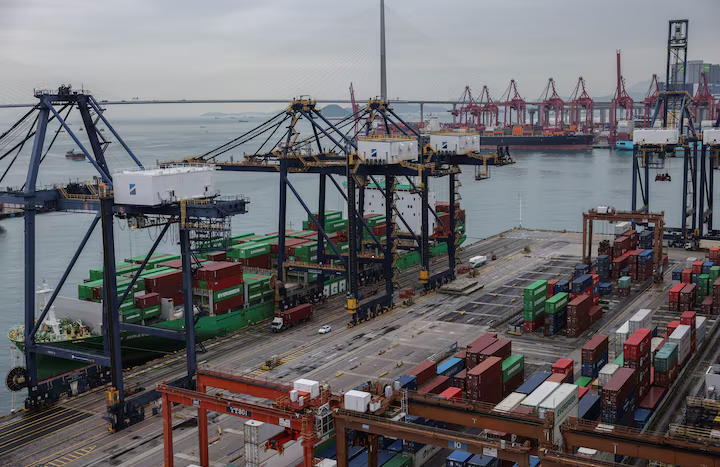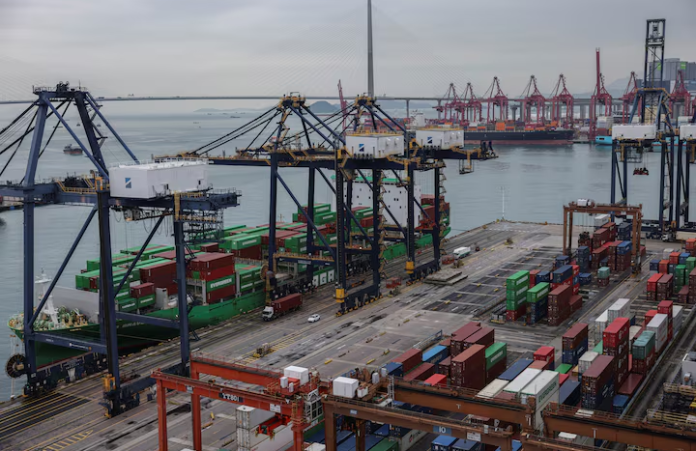In a significant development on April 24, 2025, China called for the removal of all “unilateral” tariffs imposed by the United States, amid increasing speculation that the Trump administration may be considering de-escalation in its ongoing trade war with Beijing. The move comes as both sides appear to be edging closer to resolving their trade disputes, though tensions remain high.
China’s stance was made clear by He Yadong, a spokesperson for China’s Ministry of Commerce, who emphasized that for any meaningful solution to the trade issue, the U.S. must first lift its tariffs. He made the point during a regular press briefing in Beijing, stating that if the United States truly wanted to resolve the trade conflict, it should cancel all tariff measures it had unilaterally imposed on China.
“The person who tied the bell must untie it,” He said, a statement that underscores China’s firm position on the matter. This rhetoric signals that Beijing expects Washington to take the first step in resolving the trade war.
Meanwhile, there has been confusion surrounding the nature of discussions between the two countries. Despite claims by U.S. President Donald Trump that there had been “direct contact” between U.S. and Chinese officials, China has denied holding any formal trade talks with Washington. Foreign Ministry spokesperson Guo Jiakun dismissed U.S. reports of ongoing negotiations, calling them “false news.”
The U.S. tariffs on Chinese goods have been a key issue in the trade war that has persisted for years, with the Trump administration initially introducing tariffs as a means of correcting trade imbalances between the two nations. The tariffs, which have been set as high as 145% on certain Chinese goods, have caused significant disruption in global trade. However, recent reports indicate that the U.S. is considering reducing these tariffs to between 50% and 65%, pending further discussions with China.
In addition to calling for the removal of tariffs, China has urged the United States to take into account both domestic and international opinions regarding the trade war. According to He Yadong, Washington should listen to the “rational voices” from the international community, which have been increasingly critical of the ongoing tariffs. These voices include foreign companies with operations in China, many of whom have voiced concerns about the negative impact of the tariffs on their investments and business operations.
To address these concerns, China recently held a roundtable with over 80 foreign firms and chambers of commerce, where Vice Commerce Minister Ling Ji encouraged companies to “turn crises into opportunities.” He also reassured foreign firms that the Chinese government would work to resolve the issues they face in the wake of the tariffs.

The trade war between China and the U.S. has been one of the most high-profile economic conflicts in recent years, and its resolution would have significant implications for global trade. With both countries signaling a willingness to negotiate, there are growing hopes that the situation may be heading toward a more stable and less confrontational phase.
However, despite the calls for tariff removal, it remains unclear when or if the U.S. will agree to lift its tariffs. The Trump administration has long viewed tariffs as a necessary tool to pressure China into making changes to its trade policies. But with the growing economic and political consequences of the trade war, it remains to be seen whether Washington will ultimately heed China’s calls for a de-escalation.
As global attention focuses on the U.S.-China trade relationship, the next steps in this high-stakes negotiation will be crucial in shaping the future of international trade.



